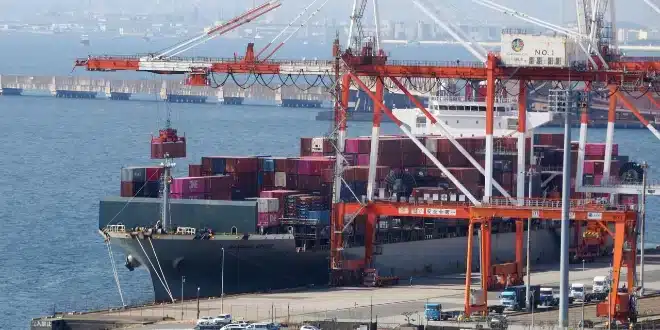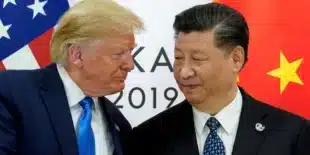Japan has faced a trade deficit for three consecutive fiscal years, driven by rising import costs for energy and other items, compounded by a weakening yen. The most recent fiscal year, ending in March, closed with a deficit of 5.89 trillion yen ($38 billion), as reported by the Finance Ministry.
The country saw its most substantial trade deficits with Middle Eastern nations like Saudi Arabia and the United Arab Emirates, along with Australia and Indonesia. However, Japan maintained a trade surplus with the United States and several European countries.
For the first time in four years, Japan’s annual exports to China slightly decreased, although there was a 12% increase in the most recent month compared to the previous year. Robert Carnell from ING Economics attributed this growth to robust technology-related exports, suggesting that exports might drive economic growth in the near future.
The depreciation of the yen significantly influenced the trade dynamics, making imports more expensive and enhancing the value of exports when converted back to yen. Currently, the U.S. dollar has risen to above 150 yen, a significant increase from around 130 yen a year earlier.
March data indicated a trade surplus of 366.5 billion yen ($2.4 billion), with exports rising by 7% from the previous year and imports dropping nearly 5%. Notably, exports to the U.S. increased by over 8% in March.
The fiscal year 2023’s deficit was considerably smaller than the previous year, which was heavily impacted by the Ukraine conflict and a spike in energy prices, and it aligned closely with the deficit recorded in fiscal 2021. Japan had last seen a trade surplus in fiscal 2020.
The pandemic had previously complicated the procurement of components like computer chips, hampering Japan’s production and export capabilities, though these challenges have been gradually resolving.
In terms of trade specifics, Japan primarily imported food and exported automobiles, auto parts, and electrical machinery. The country also experienced a boom in inbound tourism, which is statistically counted as an export.


